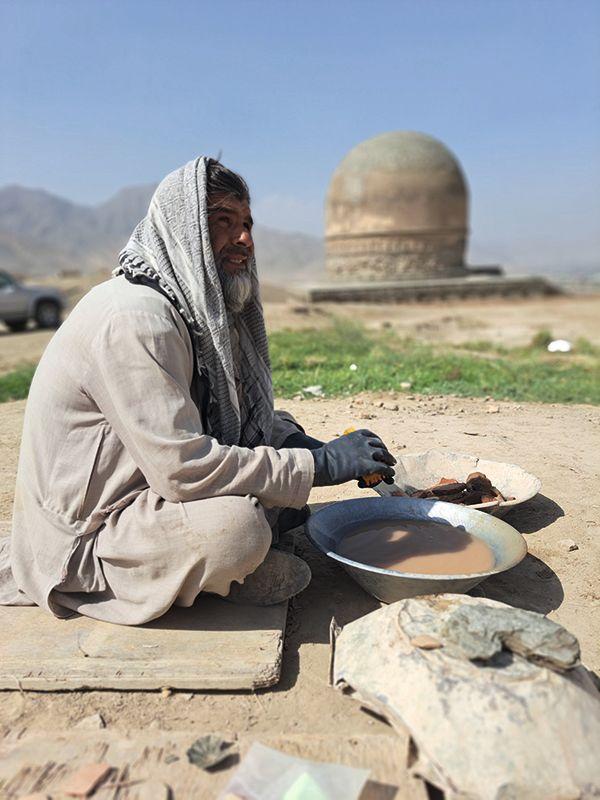Unexpected archaeological discoveries at a 1,500-year-old Buddhist site near Kabul emphasise missed opportunities to invest in Afghanistan’s historic sites as a result of the country’s isolation and lack of funding.
Conservation works on a stupa at Shewaki, 20km south-east of Kabul, have not only restored one of the country’s largest burial sites of this kind, but have also revealed hundreds of artefacts and dozens of ancient monuments in the area. But lack of funding and resources have halted further investigation.
After the Taliban takeover of the country in August 2021 the few heritage experts who remained in the country suddenly found themselves able to explore historic sites that they had previously been unable to reach due to lack of security. At Shewaki, many of the nearby monuments were discovered after the Taliban established a government.
“Previously we were not able to reach the sites near Shewaki because of security concerns, but now we can go anywhere in Afghanistan without any issues,” says Azizuddin Wafa, a senior archaeologist with the Afghan Institute of Archaeology who worked on the Shewaki project.
However, Wafa, who has worked on some of the country’s most momentous sites including Mes Aynak and the Topdara stupa, says that, although there is much more work to be done at Shewaki and at other sites throughout Afghanistan, he has little hope of continuing due to a lack of interest in collaborations from the international community.
“Afghanistan is not in a situation that can fund archaeological projects—we need outside support,” Wafa says.“If our international friends and international colleagues work with us, like they did before, it will have two positive impacts. First, from a financial point of view it will be a huge help for Afghans [through employment], and secondly, it will help piece together Afghanistan’s history and what it once possessed,” he adds.
A near-$900,000 project, funded by the Swiss-based Aliph foundation, was started in 2020 and completed in November 2022 under the Taliban government by the Afghan Cultural Heritage Consulting Organisation (ACHCO), a non-profit, apolitical and cultural organisation, in collaboration with the Afghan Institute of Archaeology.
Building a sense of ownership
“Given the focus of most current donors on humanitarian needs, cultural heritage is inevitably regarded as marginal, despite the fact that conservation generates significant employment,” says Jolyon Leslie, an adviser to ACHCO who worked closely on the Shewaki project.Leslie says that more than a quarter of the overall project’s expenditure at Shewaki was spent on labour, 90% of which came from local villagers. The involvement of the villagers in the project has also reignited their sense of ownership of the site, which can help protect it.
Significant findings in the vicinity of the site include around 13 smaller stupas, furnaces that may have been used to smelt copper, remains of figurative sculptures and a giant head of Boddhisatva in red clay.
Prior to the restoration and restabilisation of the main stupa in the foothills of the Monaray Ghar mountains, a damaged dome and drum were its only visible parts. They are believed to have been built between the third and fifth centuries.
Some of the earliest recorded damage to the stupa was caused by Johann Martin Honigberger, a German doctor who in 1832 dug a tunnel from the drum to the circular construction within the stupa’s masonry core. Honigberger looted artefacts from the site, including gold and silver objects, pearls, coral, semi-precious stones and a fragment of birch bark with Kharoshthi script.
Wafa says that, as well as a significant lack of funding and access to modern technology, his department has also lost numerous experts who left the country for opportunities in Europe or elsewhere.
“Developed countries don’t need us or our expertise. The place that really needs expertise is Afghanistan, so I don’t believe our educated people should leave this country—they should stay and help build it,” he says.

























